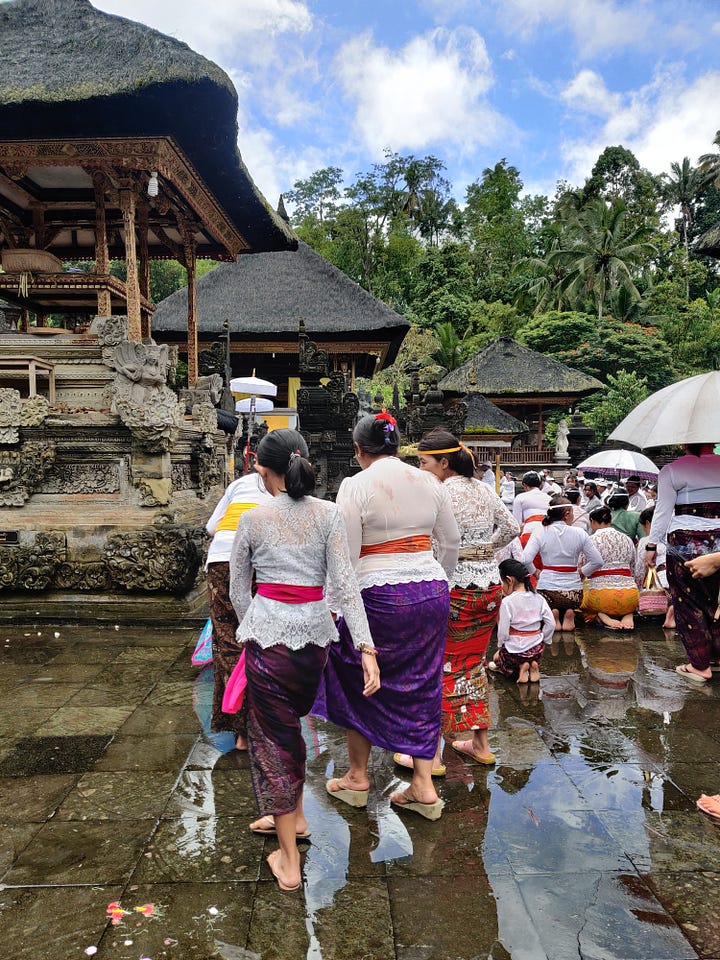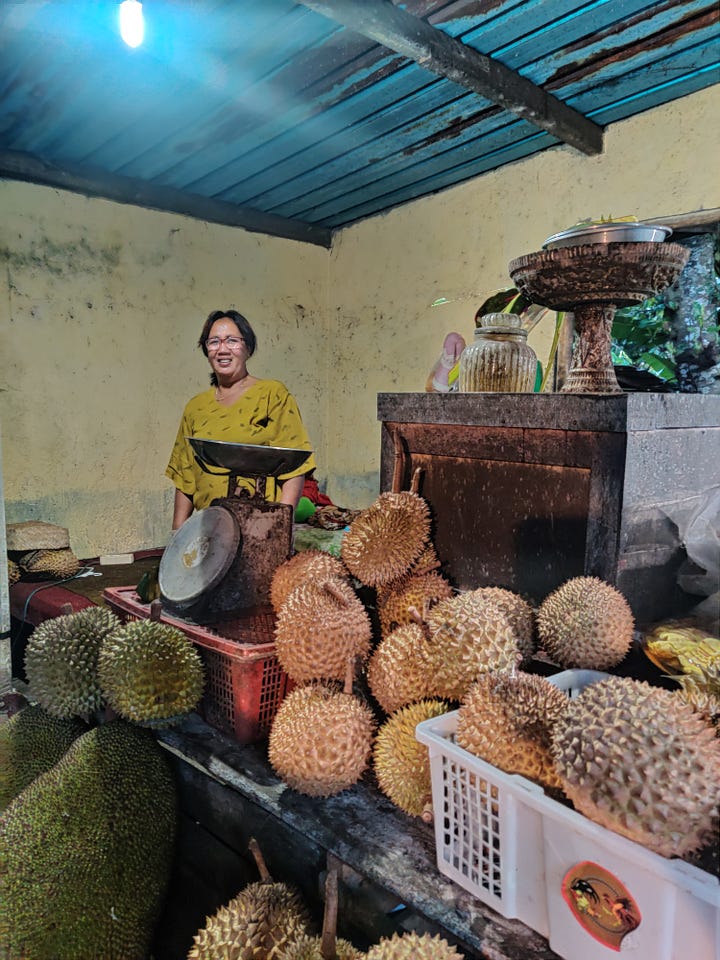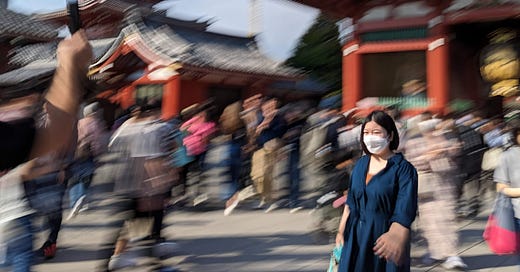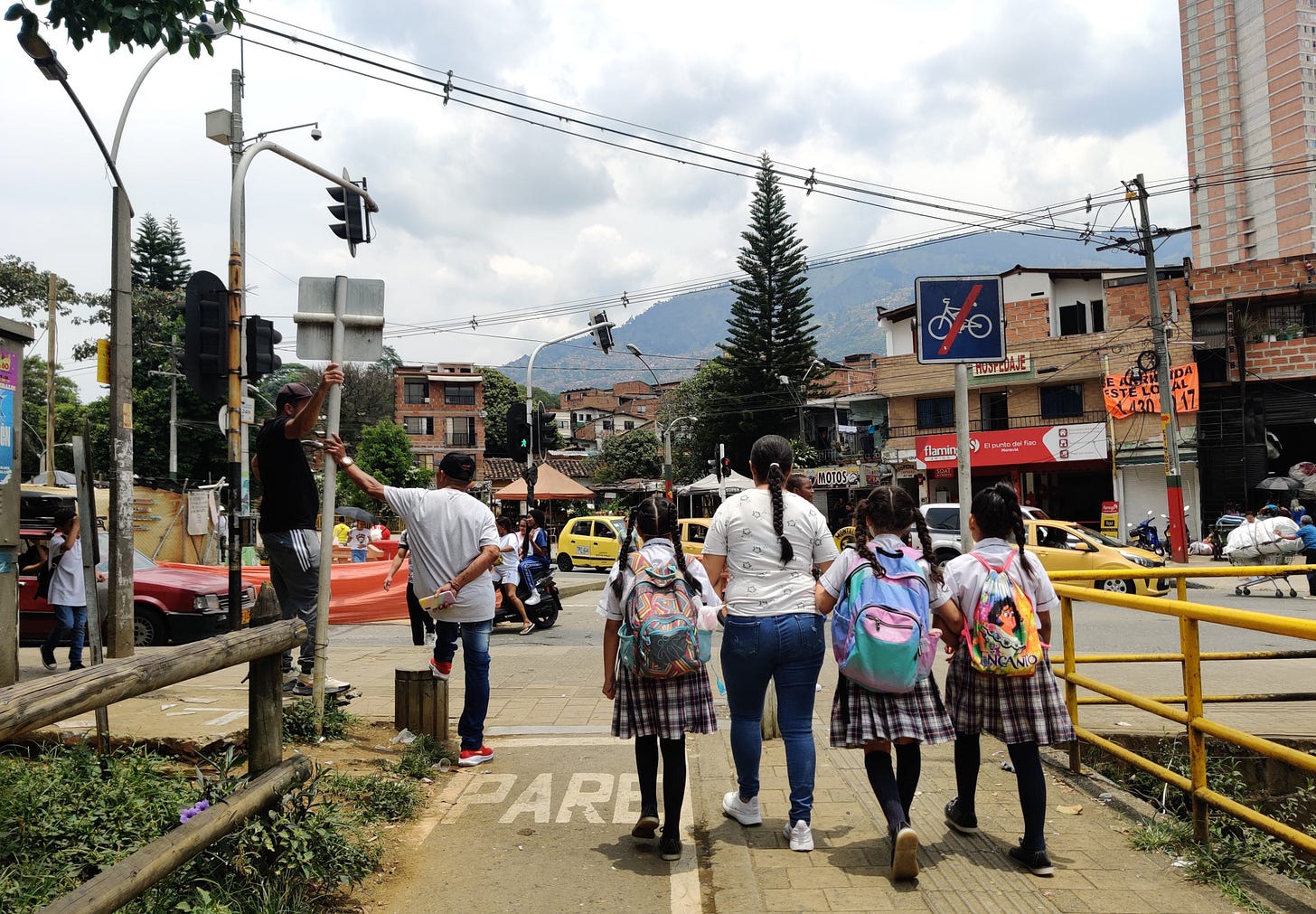Travel and the art of absorbing cultures
In TK #7, I look back at a year of exciting travel. Postcards from Japan, Colombia and South-East Asia brought to you by a journalist.
Hello everyone,
I will keep this edition of TK brief. It is the last Friday of 2023! It has been a terribly heart-breaking year and several parts of the world—from Manipur to Sudan to Palestine—have been torn apart by mindless violence. Year-end lists are flooding our feeds. Fellow journalists are wrapping the year with listicles of their amazing work. I now have half dozen or more articles bookmarked for the weekend.
TK in journalism and publishing is an abbreviation for “to come”, often used by editors, reporters and publishers (mostly in the West) to mark something that needs to be decided or to be filled in.
Amidst all this, life goes on in our private spaces. And I admit that as a journalist, my plate was filled with meaningful work. But instead of a list, I want to wrap the year with a quick throwback—a breathless summary if, you will—of what I did, and three interesting takeaways from this year’s travels.
For a longtime until early this year, the only form of ‘diarying’ I did was on Instagram. But in 2023, I was largely off Instagram. I hardly posted anything about my life and my personal account is almost dead, although I continue to share work updates on my Twitter and Instagram work accounts (as a freelancer I can’t afford to vanish!). This happened organically and I am content about the comfort I derive from just being, and not having to put on a performance for social media. This is not to say that I didn't indulge in doom scrolling and watching an inordinate number reels. This disclaimer is to just prepare you for what’s ahead: a small year-end diary entry.
In January 2023, my calendar looked blank. I had no projects in sight, and I was waiting to hear from a bunch of publications and funders. By February that changed. This year turned out to be incredibly packed and exciting, almost unprecedented. I got a grant each from the Pulitzer Center (see the project here) and the International Women’s Media Foundation to pursue two different series of stories about women in India. I was invited to attend/speak at four different events online and offline. And I was shortlisted for two awards: one for a story on India’s POCSO Act and another for this story about how climate change affects fisherfolk.
I pretty much lived out of suitcase. I had the opportunity to travel the world–Indonesia, Colombia, Portugal, Turkey, Italy, Japan, Thailand– as well as the country–rural parts of Gujarat, Chhattisgarh, Maharashtra, Tamil Nadu and Karnataka, and Delhi. Most of these trips were for work, some were for leisure.
I have nothing but gratitude for the year gone by. I don't want to bore you with a list of all the stories I did. You are about to go relax this weekend, my stories will vanish in your bookmarks. But if you are interested you could see it on my website here.
To be clear, this is not to say that there were not disappointments: there were so many, but in the spirit of the festive season, I want to look back with happiness and not regrets.
One of the first books my partner/spouse gave me several years ago was The Art of Travel by Alain de Botton. It’s pretty fitting—one of our shared interests is to constantly explore new cultures and worlds. In my Botton-phase, I read almost every work of his. This one remains my favourite. The quotable-quotes I’ve underlined with a pencil in my worn-out copy have now faded. But one simple line he writes is: “What we find exotic abroad may be what we hunger for in vain at home.”
Our understandings and assumptions about far-away countries and their people prevent us from seeing them for their complexity. It prevents us from seeing their multi-layered stories. Travel, then, is an opportunity to listen and learn about the places we’ve gone to and the home we’ve left behind.
Glorifying the Japanese work ethic:
In October 2023, when Narayana Murthy told Indians to work for 70 hours a week, like the Japanese, it seemed bizarre to me. We see this often, people glorifying or demonising far-away societies doing certain things a certain way without knowing that full picture. Never bothering to fully understand the impacts of what they are suggesting.
When I went to Tokyo, I joined a walking tour. The guide, a Japanese techie and mom of two who had quit her job, told us about the hardships faced by Japanese workers due to long work hours. Working hard is a virtue in Japan, but it’s also one of the reasons behind declining fertility rates in the country. Here’s a short read that explains it.
Below are also some links to episodes from Deep Dive, a podcast by Japan Times. I found this publication has a great mix of features and podcasts about Japan. The ones I liked were: how an ageing population affects food culture; what a night in Tokyo looks like; the trend of ‘bullet climbs’ to Mt Fuji.Netflix, Narcos, and birthing new cities:
I visited the city of Medellin in Colombia in March 2023 for the World Science Journalism Conference thanks to a travel fellowship awarded by the Internews Health Journalism Network.
I don’t remember the first time heard about Medellin. But it was after watching the Netflix series Narcos, that it was etched in my mind. This is the same city associated with the drug lord Pablo Escobar. There was a time when Medellin was caught up in a constant cycle of violence and poverty. Its streets have seen gruesome violence, and many Colombians in the city have tales of lost loved ones and encounters with drug lords. It is only in recent years that it has emerged out of the dark shadows of the underworld.
In Medellin, I saw a city and its people working hard to change their image and build a new future–like a young adult who wasted their teenage years but wants to prove to the world that they are capable of a lot more than they are credited for. Medellin’s story is truly fascinating. The city has put its faith in and invested in its people–those living in urban slums, young mothers, teachers, librarians, and a lot more–and I hope I will find some time to put down what I saw.Unpacking gender and socio-economic issues through travel:
I rang in 2023 with my partner in Bali, Indonesia, and the last trip of the year was to Thailand. In both countries, I saw lots and lots of women in public spaces. Working women—traders, shopkeepers, saleswomen, cashiers, waitresses, vendors, craftspersons, masseuses, sex workers, and more—were not an anomaly. A quick look at their female labour force participation can tell you how starkly different Indonesia (a predominantly Muslim country, barring Bali) and Thailand are. Close to 40% of the women in Indonesia and 58% in Thailand participate in the labour force; in comparison only around 32-35% of women over 15 years-old work in India.
When I read up the reasons behind this, one thing stood out: the driver for better female workforce participation is more equal laws and policy interventions, and socio-cultural attitudes towards women’s work and education. This is not to say that Thai or Indonesian women have less unpaid care work, but generally it seems like they have more equality which helps them—and their countries—thrive.

[R] Women at the Pura Tirtha Empul in Bali, Indonesia. [L] A durian seller. Photos: Mahima Jain
In contrast, take India. In the name of protecting women from gender-based violence, we curb their freedoms and movements. We systematically curtail the support women and girls need to thrive. A couple of weeks ago, a city in Uttar Pradesh banned night tuition for female students. Some of us are outraged, others think it's alright. For those who think this is for the safety of women, let's pause and reflect on how this sets girls and women back. This is just a small example of half-baked policies that are impinging on the rights and freedoms of women.
For any country to move forward, we need women to participate actively in public spaces, economy and politics. Bans on women’s mobility aren’t going to do anyone any good.
So that is it for 2023. It was good to me, and I hope 2024 is kind too!
If you’d like more of TK–a mix of a journalist’s diary, reporting bloopers, outtakes from my stories, and research notes–do share and subscribe to this newsletter. If anyone’s interested in knowing more about pitching, grants and fellowships, you can write to mhmajain@gmail.com. I’ll do the best I can to help.
I hope you have a wonderful 2024! I will see you in January!
Best,
Mahima Jain





